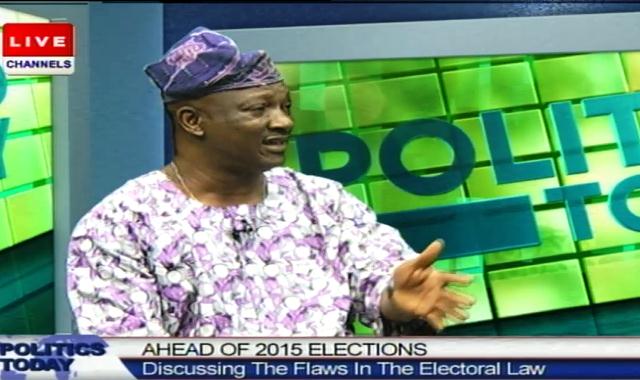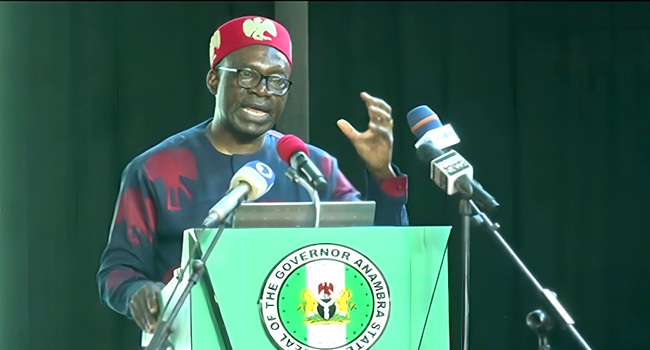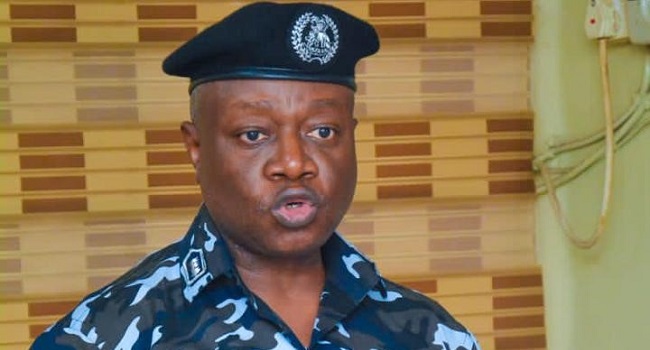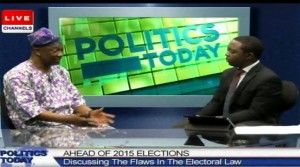
Jimi Agbaje was a guest on Channels Television’s ‘Politics Today’ on Sunday, April 6.
While advocating the need for the Independent National Electoral Commission to raise its game and earn the confidence of Nigerians, he recalled the contrast between the 2007 elections conducted by the INEC which he referred to as a disaster, and the improvement witnessed in the 2011 election which “provided hope for Nigerians.”
He believes that the recent conduct of elections in Anambra State had again undone the good that the commission had done by its improved conducts in the Edo State elections. Therefore, the onus was on INEC to work hard to earn the trust of Nigerians all over again.
He noted that any form of amendment being proposed for the Electoral Act would be coming against the background of how much INEC can do, “Is INEC getting better?”
Joining the programme via the telephone, a legal practitioner, Chima Nnaji, placed emphasis on the logistical challenges facing the country and the controversies surrounding the introduction of electronic voting.
He stated, “If there is just one thing that we need to get right, if it is possible, that would have a multiplier effect on the rest, it is this electronic voting process. If we can get this right, the tendency is that it would reduce rigging and all this idea of people sitting down in one room and writing results.
“It will also help good governance in absolute terms because if a politician knows that it is the voters that matter in the electoral process they will respect the ballot box.”
The plan to review Nigeria’s electoral laws had been in the news in the past week and Director of Voter Education and Publicity, INEC, Mr. Olumide Osaze-Uzzi, was also on the programme from our Abuja studio to offer INEC’s perspective for a balanced view of the development.
He revealed that INEC had made a number of requests in the ongoing electoral reform process, including those bordering on its operational independence, the electronic voting, and being at the forefront of the establishment of an Electoral Offences’ Tribunal as well as the Electoral Offences’ Commission.
Electronic Voting
Speaking about the expectations of Nigerians as regards the possibility of INEC deploying electronic voting in the 2015 general elections, Mr 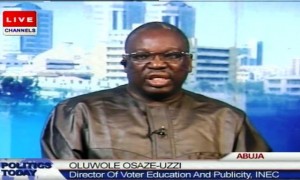
While admitting that the commission was not insisting that it was ready for e-voting, he said that they were requesting for INEC to be allowed to commence that process whereby foundations are laid for the exercise to be able to take off soon in the country.
He noted that the commission had demonstrated its willingness to embrace the process with its launch of the electronic register during recent elections and as also seen in its distribution of permanent voter cards in parts of the country, like Osun State.
Osaze-Uzzi said that the legal restrain was the reason why all its activities had been to deploy their technology mainly to activities like registration, voter verification and other pre-election processes which they are allowed to conduct electronically.
Mr Jimi Agbaje, in his reaction stated that Nigeria was not ready for electronic voting. He said that there were many things that would need to be put in place for such system to work in Nigeria.
He said that Nigerians would need to believe in the system for it to work, adding that INEC would need to convince Nigerians that the electronic voting would be fraud proof before they can see it as worthy of being embraced.
Independent Electoral Offences’ Commission
INEC has also requested that it is allowed to be at the fore front of electoral prosecutions in order to be able to prosecute electoral offenders.
Osaze-Uzzi explained that if a person has been found guilty of an electoral offence, such person should be disqualified from participating in any election, but INEC does not have the powers to disqualify candidates.
Therefore, giving the powers to a well-funded independent Electoral Offences’ Commission which would have the powers to arrest, investigate and prosecute offences, including the qualification and disqualification of candidates, would ensure that the system is cleansed.
Agbaje agreed that there needs to be a separate commission whose job it would be to prosecute election offenders.
He noted that the reason violence had continued to rise in Nigerian elections was because there had been no real punishment for offenders.
The militarization of elections in Nigeria also came to the fore in the discussion, as Agbaje noted that the deployment of soldiers during elections was an indication that the system was not perfect as their presence already reduces the chances of calling the elections “free and fair”.
He, however, would not totally condemn the practice as he admitted that indeed the Police cannot handle the management of elections in Nigeria due to the violent attitude of many Nigerians during elections.
He further emphasized the need to have electoral violence well punished as the only way to put a stop to the practice in Nigerian politics.
With INEC’s request for an independent body to prosecute electoral offences, the level of independence that INEC itself has was also scrutinized. Mr Osaze-Uzzi, said that the INEC was “as independent as the law permits it.”
While admitting that the commission wished that it was more independent, he noted that they do not take orders from anybody but they were still subject to the judiciary, the legislative, and when they submit budgets it is subject to approval.
Agbaje while corroborating Osaze-Uzzi’s submission on the level of INEC’s independence said that the commission could never be 100% independent. He, however, noted that attention should be given to the states and not necessarily the commission at the national level.
He said that the choice of Professor Attahiru Jega as head of the electoral commission was a good one with a level of independence maintained over the years, but the state electoral commissions cannot be seen as being independent and more attention should be paid to the commission at that level since most of the electoral issues arise from them.

